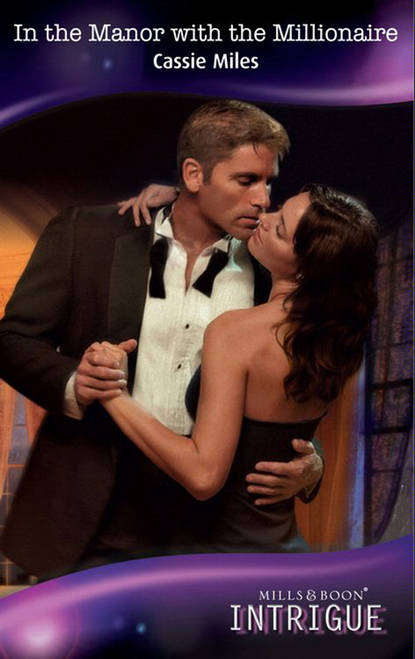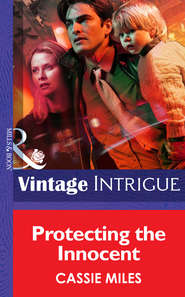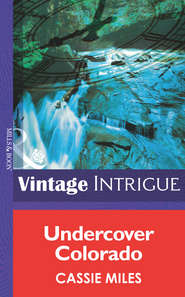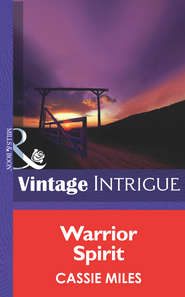По всем вопросам обращайтесь на: info@litportal.ru
(©) 2003-2025.
✖
In the Manor with the Millionaire
Автор
Год написания книги
2019
Настройки чтения
Размер шрифта
Высота строк
Поля
The shadow at the top of the stairs was as big as a T-Rex with giant, pointy teeth. Duncan wasn’t going there. He turned around on the stairs and quietly counted backward. “Nine, eight, seven…”
He was at the front door of the big house they had just moved into. Though he didn’t like touching doorknobs, he grabbed it and pulled.
Outside, the rain wasn’t too bad. Big, fat drops splashed on the flat stones leading up to the front door. He stuck out his hand to catch them.
He walked out into it. Five steps. Then ten.
The light by the front door didn’t reach very far into the dark. The thunder went boom. He heard the ocean smashing on the rocks at the bottom of the cliff.
He turned around and stared at the big house. On the first floor were four windows and one door, exactly in the middle. Five windows, all exactly the same size, on top. All exactly balanced. He liked that. What he didn’t like was the big, old, wrecked-up tower that Daddy said used to be a lighthouse.
He looked toward it and saw a girl in a long dress and a red cape. She skipped toward the trees in the forest.
She giggled. Not the kind of mean laugh that kids used when they pointed at his gloves and called him Dunk the Skunk. She waved to him as though she wanted to play.
He heard her singing. “She sells seashells by the seashore.”
MADELINE DOUGLAS gripped the steering wheel with both hands and squinted through her glasses at the narrow road winding through the thick Maine forest. Her headlights barely penetrated the rain and fog that had turned the summer night into a dense black shroud.
She opened her window to disperse the condensation on her windshield; the defroster in her ancient Volkswagen station wagon had quit working. This cranky old rattletrap always chose the worst possible moment to be temperamental. If the skies had been clear—the way normal weather in July ought to be—the defrost would have been fine.
How much farther? The man at the service station in Raven’s Cliff where she’d spent her last ten bucks on gas told her that this road led to Beacon Manor. “Can’t miss it,” he’d said.
“We’ll see about that,” she muttered. Thus far, everything about her drive from Boston to this remote fishing village in Maine had gone wrong. An accident with a logging truck had clogged the highway. Then, she’d missed the turnoff and had to backtrack several miles. Then, her cell phone died. And now, the weather from hell.
At five minutes past eight o’clock, she was more than half an hour late for her interview with world-famous architect Blake Monroe. Not to mention that she was a mess. Her green-patterned blouse didn’t go with the bright red cardigan she’d dragged out of her suitcase when the rain started. Her khaki skirt was creased with wrinkles. Her black hair, pulled up in a knot on top of her head, had to be a frizz mop.
Somehow, she had to pull herself together and convince Blake Monroe to hire her as a tutor for his six-year-old son, Duncan, who had been diagnosed with a form of high- functioning autism. Though she had no formal training in handling kids with special needs, Madeline had been a substitute teacher for the past two years in Boston’s inner-city schools. She had first-hand experience with a wide range of behaviors.
She’d convince him. She had to.
If Blake Monroe didn’t hire her, she had a serious problem. With her meager supply of cash spent and her credit cards maxed, she couldn’t even afford a cheap motel room for tonight. Sleeping in her car would be difficult; she’d crammed all her earthly belongings in here, including the potted ficus that sat beside her on the passenger seat.
The rain died down, replaced by gusts of fog that slapped against her windshield like tattered curtains. The tired old engine coughed on the verge of a breakdown as she emerged from the forest.
In the distance, perhaps a half mile away, she saw the glimmer of lights. Beacon Manor. Huge as a fortress, the mansion loomed in the foreboding darkness.
She maneuvered around a sharp curve that circled a stand of trees. On the opposite side, the shoulder of the road vanished into nothingness at the edge of a cliff. A dangerous precipice with no guard rail.
Her headlights shone on a dark-colored SUV parked smack in the middle of the road. His lights were off. There was no way around him.
She cranked the steering wheel hard left—away from the cliff—and slammed on the brake. Though she couldn’t have been going more than twenty miles an hour, her tires skidded on the wet asphalt.
In slow motion, she saw the inevitable collision coming closer, inch by inch. Her brakes screeched. The fog whirled. Her headlights wavered.
Her right fender dinged the rear bumper of the SUV, and she jolted against her seat belt. Though the impact felt minor, the passenger-side airbag deployed against the ficus. Great! Her plant was protected from whiplash.
But not herself. The driver’s-side airbag stayed in place. Like everything else in her life, it was broken.
She slumped over the steering wheel. A nasty, metallic stink from the engine gushed through her open window. A car wreck would have been disaster, and she ought to be grateful that her car wasn’t a crumpled mass. Instead, hot tears burned the insides of her eyelids. In spite of a lifetime of careful plans and hard work, in spite of her best intentions…
A hand reached through the window and grabbed her upper arm. “What’s wrong with you? Didn’t you see me?”
Startled, she stared into the stark face of a smallish man with a goatee. A sheen of moisture accented the hollows beneath his eyes and his angry, distorted snarl.
He shook her. “Don’t think you can run away. You’ll pay for this damage.”
Enough! She shoved open her door, forcing him back. Justified rage shot through her as she leaped from the car into the drizzle. “You’re the one at fault. Look where you’re parked. There’s no way I could get around you.”
“You’re trespassing.” With his left hand, he pulled his collar tight around his throat. His right arm hung loosely at his side. “This is my property.”
Her hopes sank. “Blake Monroe?”
“Monroe? He’s the architect I hired to fix this place up.” His skinny neck craned. Even so, he wasn’t as tall as her own five feet, ten inches. “I own Beacon Manor. I’m Theodore Fisher. Doctor Fisher.”
He announced himself as if she should be impressed, but she’d never heard of him. “All right, Doctor. Let’s take a look at the damage.”
The deep gouge on her fender blended with other scrapes and nicks. Dr. Fisher glanced at the scratch on his SUV, then turned his back on her. Clearly agitated, he walked wide of the two vehicles with tense, jerky steps. His brow furrowed as he peered into the darkness at the edge of the cliff. Watching for something? For someone? As he paced, he muttered under his breath. Though she couldn’t make out the words, he sounded furious.
Madeline didn’t want that crazy anger turned in her direction. Speaking with the measured voice she used to calm a classroom full of second-graders, she said, “We should exchange insurance information.”
“Not necessary,” he snapped.
“I agree.” She wouldn’t bother with this repair, couldn’t afford to have her insurance premiums go up. “I’m willing to forget about this if you are.”
His head swiveled on his neck. He focused intently on her. “Not trying to pull a fast one, are you?”
“Certainly not.” She removed her rain-splattered glasses. His face blurred.
“Why are you here?” he demanded.
“I’m applying for a job as a tutor for Blake Monroe’s son.”
“So you’ll be staying at the Manor. At my house.” Very deliberately, he approached her. “I’ll always know where to find you.”
The wind wailed through the trees, and she heard something else. A voice? Dr. Fisher turned toward the sound. His arm raised. In his right hand, he held an automatic pistol
SHE SELLS seashells…
In her long dress, she was the prettiest girl Duncan had ever seen. Her hair was golden. Her skin was white. She looked like the marble angel on Mama’s gravestone.
“I would like to be your friend,” she said. “My name is Temperance Raven.”
“That’s the name of this town,” Duncan said. “Raven’s Cliff.”
“Named after my father,” she said. “Captain Raven.”
He knew she was telling a lie. The town was founded in 1794. He remembered that date, just as he remembered all numbers. So what if she fibbed? He liked the way she talked, like an accent. “Where are you from?”











